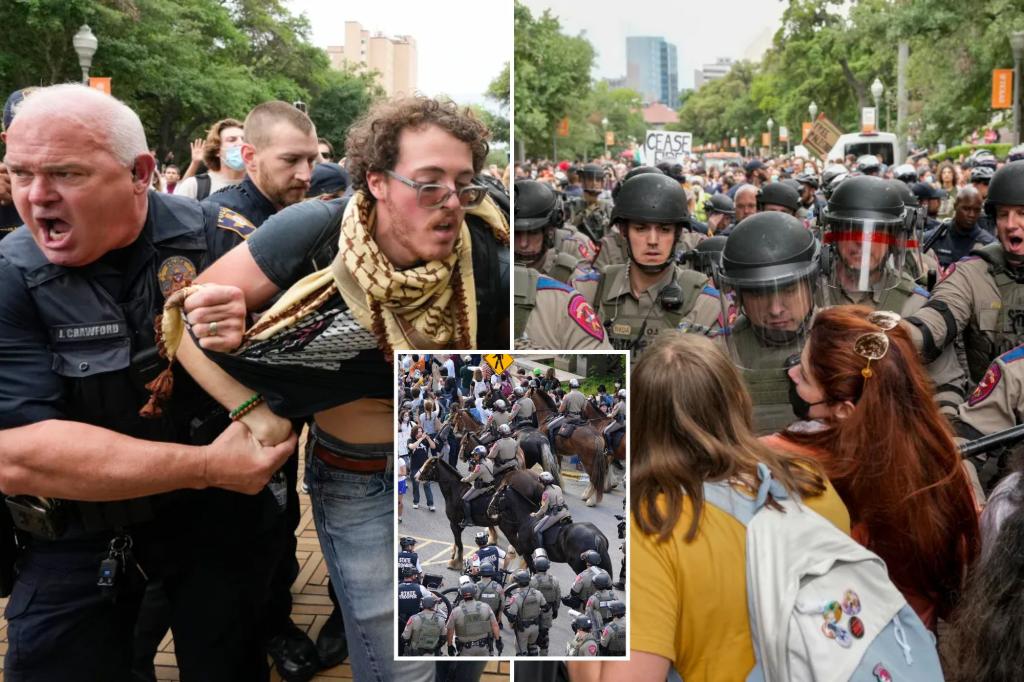Police arrested student protesters at USC peacefully while violent clashes occurred at the University of Texas at Austin. At USC, demonstrators were detained without incident after refusing to disperse. The situation escalated earlier in the day with rising tension between police and protesters. In contrast, the Texas police presence and arrests were seen as an overreaction by some students.
The standoff between protesters and police at universities nationwide has been a result of demonstrations against the Israel-Hamas war. Students in California and Massachusetts have been demanding schools to cut financial ties with Israel and divest from companies enabling the conflict. While some claim the protests have veered into antisemitism, others argue that the heavy-handed response from universities is unwarranted.
At some universities like Columbia University, tensions have been escalating as encampments have been set up by protesters. At Harvard, access has been limited in an attempt to avoid such protests. Student protests have led to arrests at various campuses including NYU, Yale, and the University of Minnesota. However, the response from universities has varied, with Columbia extending negotiations with protesters rather than forcefully removing them as before.
Calls for order and dialogue at universities have been made by officials and students alike. Some have even suggested the deployment of the National Guard, although this idea has been dismissed by Columbia University. Misinformation and rumors have fueled further tensions, leading to a lack of trust between protesters and university authorities. Students on both sides of the conflicts continue to voice their grievances and demands for change.
Students on various campuses have taken it upon themselves to demand accountability, transparency, and divestment from their universities. Issues of human rights, occupation, and antisemitism have been at the forefront of these protests. Police crackdowns have prompted more students to join in, setting up similar encampments across the country. Educational institutions have been put in a position where they must balance the rights of peaceful protest with maintaining order and safety on campus.
The ongoing conflicts have highlighted deep-rooted issues of advocacy, resource allocation, and ideological differences. Universities are facing pressure to address the concerns of their students while ensuring a safe and inclusive environment for all. Amidst the chaos, calls for dialogue, understanding, and respect have emerged as essential components for resolving the tensions between students, protesters, and authorities on campus.


